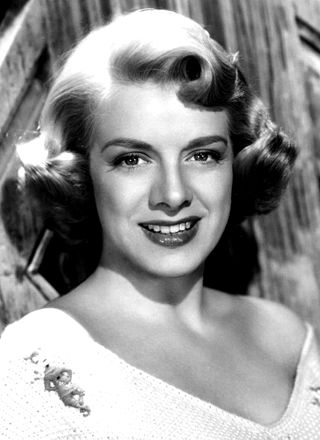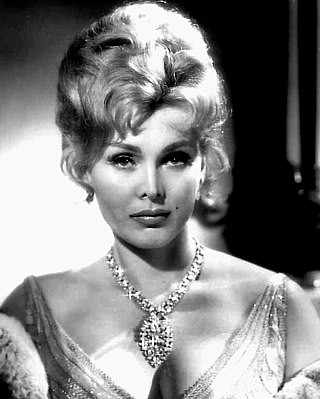
Rose M. Clooney was an American singer and actress. She came to prominence in the early 1950s with the song "Come On-a My House", which was followed by other pop numbers such as "Botch-a-Me", "Mambo Italiano", "Tenderly", "Half as Much", "Hey There", "This Ole House", and "Sway". She also had success as a jazz vocalist. Clooney's career languished in the 1960s, partly because of problems related to depression and drug addiction, but revived in 1977, when her White Christmas co-star Bing Crosby asked her to appear with him at a show marking his 50th anniversary in show business. She continued recording until her death in 2002.

Ernest Edward Kovacs was an American comedian, actor, and writer.

José Vicente Ferrer de Otero y Cintrón was a Puerto Rican actor and director of stage, film and television. He was one of the most celebrated and esteemed Hispanic American actors—or, indeed, actors of any ethnicity—during his lifetime and after, with a career spanning nearly 60 years between 1935 and 1992. He achieved prominence for his portrayal of Cyrano de Bergerac in the play of the same name, which earned him the inaugural Tony Award for Best Actor in a Play in 1947. He reprised the role in a 1950 film version and won an Academy Award for Best Actor, making him the first Hispanic actor and the first Puerto Rican-born to win an Academy Award.

Zsa Zsa Gabor was a Hungarian-American socialite and actress. Her sisters were socialites and actresses Eva Gabor and Magda Gabor.

Rose Joan Blondell was an American actress who performed in film and television for 50 years.

Peter Sydney Ernest Lawford was an English-American actor.

General Electric Theater was an American anthology series hosted by Ronald Reagan that was broadcast on CBS radio and television. The series was sponsored by General Electric's Department of Public Relations.

Madelyn Pugh, sometimes credited as Madelyn Pugh Davis, Madelyn Davis, or Madelyn Martin, was a television writer who became known in the 1950s for her work on the I Love Lucy television series.

Queen for a Day was an American radio and television game show that helped to usher in American listeners' and viewers' fascination with big-prize giveaway shows. Queen for a Day originated on the Mutual Radio Network on April 30, 1945, in New York City before moving to Los Angeles a few months later and ran until 1957. The show then ran on NBC Television from 1956 to 1960 and on ABC Television from 1960 to 1964.

Robert Lowery was an American motion picture, television, and stage actor who appeared in more than 70 films. He was the second actor to play Batman, appearing as the character in the 1949 film serial Batman and Robin.

Joanna Barnes was an American actress and writer.

Matinee Theater is an American anthology series that aired on NBC during the Golden Age of Television, from October 31, 1955, to June 27, 1958. Its name is often seen as Matinee Theatre.

Popeye the Sailor is an American animated television series produced for King Features Syndicate TV starring Popeye that was released between 1960 and 1963 with 220 episodes produced. The episodes were produced by a variety of production studios and aired in broadcast syndication until the 1990s.

Nita Talbot is an American actress. She received an Emmy Award nomination for Best Supporting Actress in a Comedy Series for the 1967–68 season of Hogan's Heroes.

The Frank Sinatra Show is an American television musical variety series hosted by Frank Sinatra from October 7, 1950, to April 1, 1952. The series aired on CBS on Saturdays the first season and on Tuesdays for the second year. As with many variety shows of the time, the show was broadcast live and was recorded via kinescope. Some episodes were 30 minutes long while others lasted for 60 minutes. At least one episode aired in a 45-minute time-slot.
Guide Right is an American musical variety show which aired on the DuMont Television Network from February 25, 1952, to February 5, 1954.

The Bigelow Theatre is an American anthology series originally broadcast on CBS Television and on the DuMont Television Network.

Howard Stern is an American radio personality who is best known for his radio show The Howard Stern Show. Stern describes himself as the "King of All Media" for his successes in the radio, television, film, music and publishing industries.

John Vivyan was an American stage and television actor, who was best known for portraying the title character in the television series Mr. Lucky.
The RCA Victor Show is a 1950s American television program broadcast on NBC that eventually became The Dennis Day Show. It began on November 23, 1951, and ended on August 2, 1954.


















